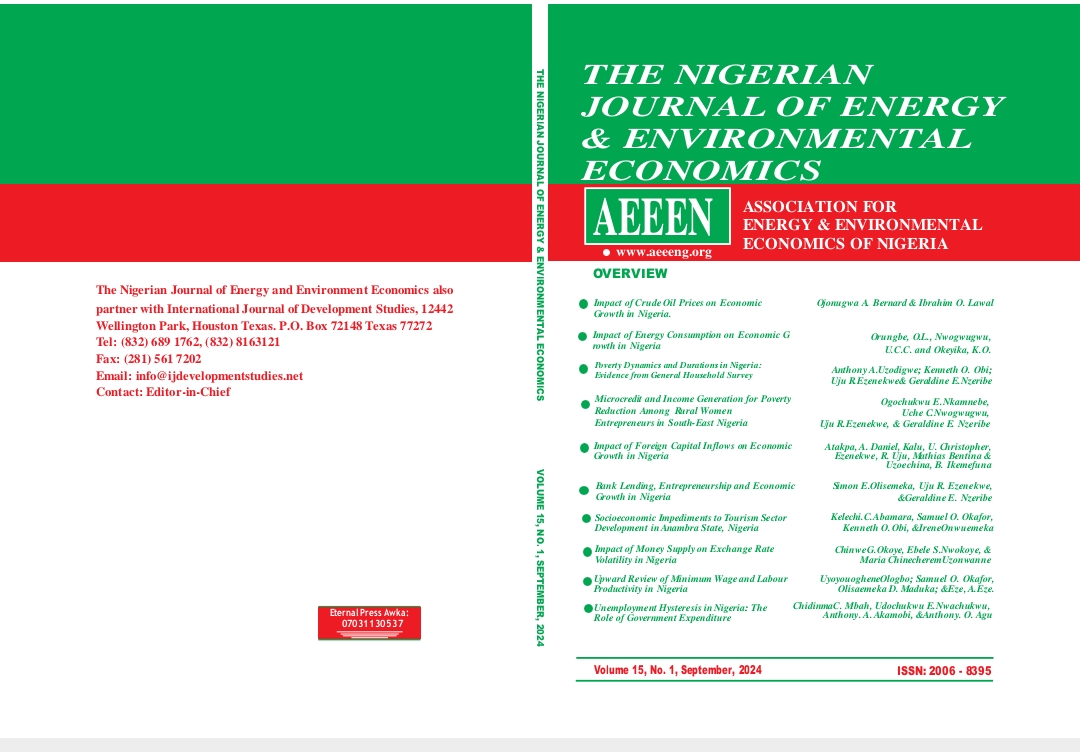IMPACT OF ENERGY CONSUMPTION ON ECONOMIC GROWTH IN NIGERIA
Keywords:
Energy consumption, natural gas consumption, petroleum, real gross domestic production,Abstract
This study investigates the relationship between energy consumption and Nigeria's economic growth from 1990 to 2022, considering the government policies aimed at fostering sustainable growth. Specifically, the study analysed the effects of natural gas, petroleum oil, and electricity consumption on the economic growth trajectory in Nigeria. This study is fundamentally grounded in the principles of endogenous growth theory. The analysis of time-series data was conducted employing the Johansen co-integration test alongside a multiple regression approach. The Johansen co-integration test conducted indicated the presence of a long-term relationship
among the variables. The findings from the multiple regression analysis indicate that there exists a significant and positive correlation between electricity consumption, population growth, and climate change with economic growth in Nigeria. Nevertheless, the consumption of natural gas and labour exhibit a negative and statistically insignificant effect on economic growth in Nigeria.
In light of the findings, the study advocates for the formulation of policies—such as transparent pricing mechanisms, enhanced regulatory oversight, and diversification of energy sources, to reduce the costs associated with petroleum and natural gas. This approach would enable both businesses and households to utilise these alternative energy sources more effectively, thereby fostering economic growth.


